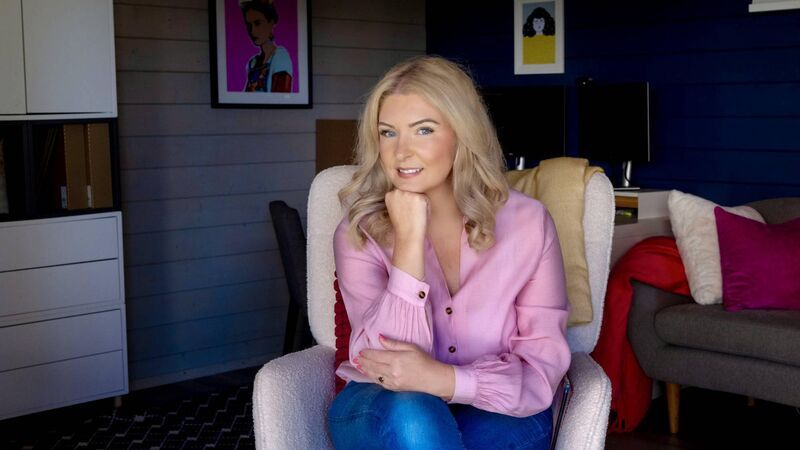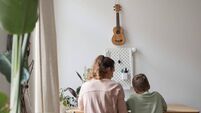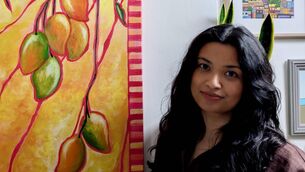My Career: ‘I’m more fulfilled than ever’

ECHO FEATURES Laura Crowley My Career WOW Feature
Name: Laura Crowley
Age: 44
Lives: Glounthaune
Job title: Autism Consultant and Additional Needs Sleep Practitioner
Salary bracket: €45,000-60,000
Education background: I began my journey in early childhood education, graduating with honours from UCC. I was drawn early on to supporting children with additional needs, which led me to immerse myself in specialised areas, such as youth work, Lámh, PECS, and child protection through various short courses.
In 2006, I decided to continue my studies while working full-time and enrolled in the Open University’s postgraduate higher diploma in education. Online learning fitted well with my schedule, and this experience inspired me to pursue a Master’s in Education, which I completed in 2010.
In 2016, I returned to UCC to study Teaching and Learning in Higher Education. This programme was especially memorable as I submitted my final assignments just a day before the arrival of my first daughter!
Juggling sleep deprivation during the early parenting years led me to study with the Sleep Charity in the UK in 2020, marking the start of my journey as a sleep practitioner.
Most recently, I pursued a Certificate in Therapeutic Play in 2023 with the Children’s Therapy Clinic. I make it a priority to engage in at least two new training programmes each year. This year, I’ve completed Level One Certification in Emotional Freedom Technique (EFT) and am set to begin a course on supporting children with a PDA profile.
Hobbies: Baking has long been my go-to for stress relief, as the precision required allows me to focus fully on the process. During the first covid lockdown, I began experimenting with abstract painting, which remains a joyful outlet for creativity whenever I can find the time.
Audiobooks are another passion of mine; I listen to them daily, alternating between work-related content and fiction, both of which bring me immense satisfaction.
Describe your job in five words: Complex, rewarding, evolving, misunderstood, and fulfilling.
Describe yourself in five words: Empathetic, intuitive, diligent, creative, supportive.
Personality needed for this kind of work? You most definitely need to be empathetic, but curiosity also needs to be at play as you need to dig deeper to fully understand the complex issues that neurodivergent individuals can struggle with.
How long are you doing this job? I have been in autism services 24 years, but began my own practice on a part-time basis in 2014 and am full-time in my own service since February of this year.
How did you get this job? My career path started with hands-on experience during my undergraduate studies. I worked in a pre-school setting, where I developed a deep appreciation for one-on-one support through my daily work with a particular child who needed additional help. This experience really stayed with me, sparking my commitment to supporting children with diverse needs.
After graduating, I worked as a care worker in a residential setting for children and adults with additional needs. This role was incredibly valuable, teaching me about empathy, respect for individual rights, and the importance of enhancing quality of life. While deeply fulfilling, I knew my true calling was in education, so I made a shift in early 2000 to join a small start-up school called CABAS on Boreenmanna Road in Cork. Over three years there, I moved up to Senior Class Teacher, finding joy in the growth of the students and the school.
In 2004, I transitioned to a home tutoring role with IPAA (Irish Progressive Association for Autism), which later became my primary workplace for nearly two decades. My time with IPAA brought significant growth opportunities, allowing me to advance quickly into leadership roles, including Director of Educational Support Services. I led IPAA’s training department and launched various impactful initiatives, most notably the PALS programme. This, supported by the Bons Secours Hospital Group, evolved into a suite of award-winning apps that gained global reach, with over 200,000 downloads.
In 2012, I was invited to contribute to the UCC Diploma in Autism Studies, focusing on the interventions and supports across the Lifespan module, which I lectured in for the next 10 years. Around this time, I felt a strong urge to offer more individualised support to autistic children and their families. This led me to establish my consultancy service, Connect Autism Consultancy, which I launched in phases in late 2014, and fully by January, 2015. Running my consultancy alongside my roles with IPAA and UCC was demanding, yet it brought me unmatched fulfillment.
In 2020, receiving my own autism and dyspraxia identification changed my perspective on my work, enhancing my self-compassion and reshaping my career goals. This newfound understanding ultimately guided me to step away from my external roles and focus entirely on my consultancy.
Since committing to Laura Crowley Connect full-time in January, 2024, I’ve felt more professionally and personally fulfilled than ever.
Do you need particular qualifications or experience? For this path, a blend of formal qualifications and practical experience is essential. Formal education provides foundational knowledge, but the most valuable lessons come from hands-on work directly with children.
Gaining experience in diverse settings is equally important, as each environment offers unique insights and skill development. Listening to the autistic community is crucial.
For too long, autism has been described from the outside looking in, but truly understanding autistic experiences is key to enhancing quality of life for autistic individuals.
Describe a day at work: For me, it begins with a short walk from my back door to the garden office, a commute I truly enjoy since it reduces the usual hustle of a traditional commute. Around 8.30 am, I start by checking emails and planning for the day, organising my client sessions, and setting any follow-ups in advance. My first client session typically starts at 9am, and I work with a maximum of five clients per day. I’ve found this balance essential to ensure I can also be present with my family.
With my clients, I focus on several key areas that support personal growth and wellbeing. This includes building self-awareness, helping individuals understand their autistic experiences, and developing self-regulation strategies. We also work on emotional literacy, which is the ability to identify, understand, and express emotions in a healthy way. Many clients struggle with anxiety, so we incorporate techniques to manage it effectively.
Additionally, I provide guidance on navigating neurotypical social awareness, supporting clients as they build confidence in these interactions. Self-esteem is also a critical focus, as a strong sense of self-worth is essential for thriving in daily life.
Between appointments, I try to handle follow-up emails and client notes, but if needed, I’ll do an extra catch-up hour in the evening.
To wrap up, I go through my emails, double-check my schedule for the next day, and send Zoom links for online consultations. I also check my social media messages in case there are inquiries or client messages waiting. During my breaks, I sometimes work on social media content to share insights and advice, although finding the time for this can be challenging with my schedule. Evenings are when I dive into creating or refining training materials and resources. I take pride in curating a library of high-quality, individualised resources for my clients, which allows me to offer them tools that are practical and effective.
How many hours do you work a week? I currently work around 26 hours a week, a schedule I designed to balance my work with my family life. For ten years, I juggled three roles: part-time lecturing at UCC, my work with a Cork charity, and my private practice, all while becoming a parent to my two wonderful daughters. My eldest is also autistic and has ADHD, so my schedule now revolves around my family, allowing me to be present and available for them while continuing the work I love.
What do you wear to work? My work attire varies based on my schedule. On days with younger clients, I go for jeans and comfortable clothing, as I’m often down on the floor with them. For training sessions in schools or businesses, I’ll opt for a smart dress and heels to create a more formal presence. Overall, I lean toward casual attire for comfort, as it helps me stay at ease and focused on my work.
Is your job stressful? How? Rate it on a scale of 1-10: I’d rate my job’s stress level around a 6, though it can vary depending on the day. My own autistic challenges, particularly with regulation, organisation, and executive functions, can add to the stress, so I’m constantly working on strategies to manage these areas. Technology has been invaluable in helping me stay organised, and I rely on it daily to keep my business running smoothly.
When do you plan to retire or give up working? Retirement is a difficult concept for me to consider, as autism is my special interest and is deeply woven into every part of my life. I’m incredibly passionate about my work, which has always felt like more than just a job. Even if I step back around 67 or 70, I imagine I’ll still be quietly working on something within the field.
Best bits: Seeing progress, understanding, self-advocacy and acceptance blossoming in my clients. That’s the golden ticket
Worst bits: Sitting with clients as they struggle. My empathetic nature often means I absorb their emotions and I find it very hard to shake it after the person has left.
Advice to those who want your job? Continuous learning is essential. Listen closely to each person in front of you without relying on preconceived notions about their experience or struggles. Sometimes, the smallest details can shift your entire understanding and lead to the most effective support.
Any other comments? If you have a preconceived idea of autism - perhaps based on popular characters like Rainman or Sheldon Cooper - I encourage you to explore autistic voices online or in person. You may be surprised by the diversity.
Autistic individuals are as varied as any other group, connected only by a shared set of traits that can show up in unique, often surprising ways. We are human, each one entirely distinct.
If you would like to feature in My Career in our Women on Wednesday please email mary.corcoran@theecho.ie







 App?
App?


